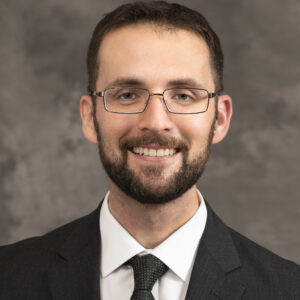McDonnell Academy Global Leadership Visions | OPINION
In December 2019, I – a sleep-deprived 1st year PhD student crunching for finals week – decided to attend a conference in DC during finals week. The journey from campus to the airport and then to DC went smoothly. However, one flummoxing obstacle blocked my progress to the hotel: the DC Metro ticket terminal. My failure to manage it was so entertaining that I snapped a photo and posted it to my Facebook. Then, I eventually figured it out and got to my hotel. To my delight the next day, my McDonnell friends chimed in with their varied experiences at the DC Metro terminal.
I wondered about people who…maybe couldn’t figure it out and reflected on my introduction to scientific research. In occupational therapy school, I worked for a professor who studied technology use among older adults with disabilities. It can become challenging to manage them, whether we are unfamiliar with them, living with a disability, or simply sleep-deprived. We also rely on them to interact, produce, and do what we need to do in life.
Humanity has struggled with managing technology and innovations to create better communities and societies – and avert the pitfalls of technology’s proliferation. Although we face dangers different from those of James S. McDonnell’s time, his challenge from nearly 50 years ago in his 1973 speech Science & Human Responsibility, “to consciously and responsibly try to lead all life on Earth further along the path of creative evolution,” remains true.
Development, science, health, relative peace, and innovation have led to roughly doubled lifespans over the past 100 years. Along with these opportunities and improvements to our lifespans, we also manage the challenge of optimizing healthspans so that individuals may also enjoy quality of life in advancing age.
As we age, we tend to experience not only changes in our environments and habits, but also the onset of impairment and disability that impact quality of life. Our biology evolves much more slowly than our technology evolves. Thus, years lived with disability is likely to remain a part of our lifespans, thus impacting our ability to enjoy a healthspan as long as our lifespan.
An outcome of aging populations worldwide is the increase in absolute numbers of people likely to experience conditions in the brain, such as stroke and dementia. We accumulate the risk factors and chronic conditions that may lead to these health conditions as we age. As we enjoy longer lifespans, our risk for experiencing difficulties not just with complicated public transportation terminals but also with other meaningful activities in the home and activities also increases. How can individuals continue to prolong a healthspan as lifespan increases? As we develop innovations that extend lifespan and healthspan, thinking carefully about how factors in people, the environment, and in activities fit together to optimize engagement in what’s meaningful affords us opportunities and challenges. Innovators and decision-makers share responsibility to design communities that are inclusive of all and optimize human potential to engage with what is meaningful.
